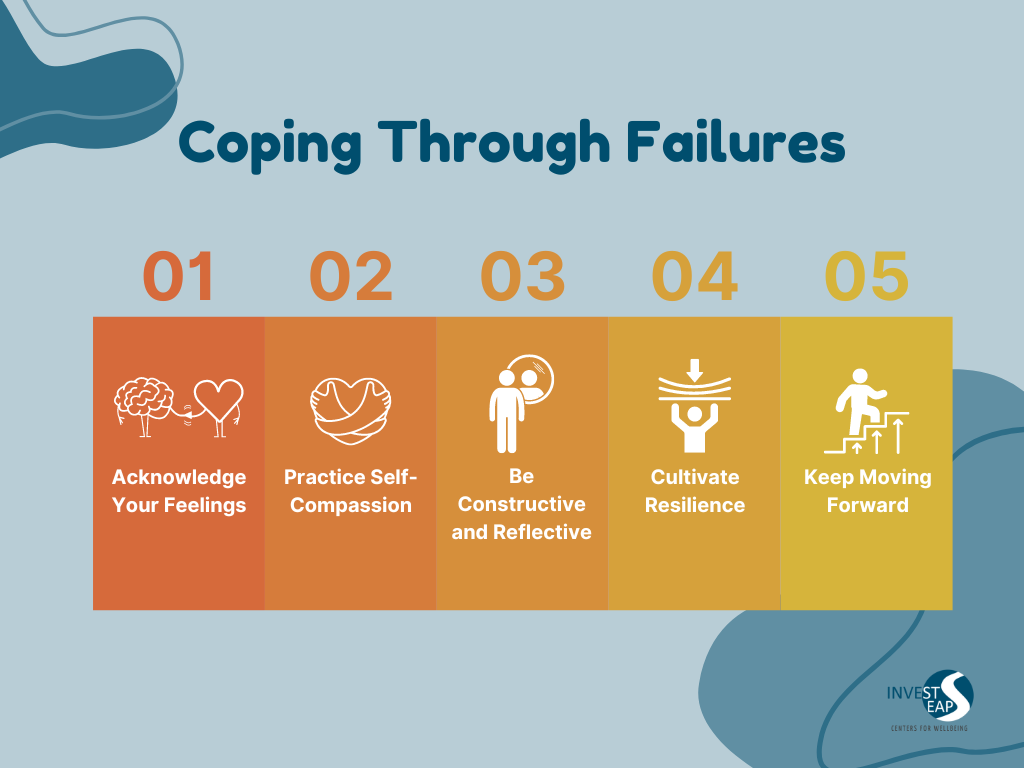How to Reframe and Accept Failure As A Path to Growth
We have all been there – that sinking feeling when things don’t go as planned. The project you poured your heart into falls flat. The job opportunity you were excited about slips away. The relationship you thought would last forever ends. Failure can be painful, and leave us feeling vulnerable, discouraged, and sometimes even questioning our self-worth.
But here’s the truth: failure is not just an inevitable part of life, it’s an essential part of our own growth. Every setback, every misstep, every “failure” can teach us and help us grow, if we let it; if we learn to accept and process our failures, we can actually use them to our advantage. Accepting failure isn’t about giving up or lowering our standards. When we shift our relationship with failure, we open ourselves up to a world of possibilities for learning, resilience, and self-discovery.
Whether you’re grappling with a recent setback or looking to build your resilience for future challenges, try these strategies to cope and start to develop a more productive and compassionate relationship with these times that are actually rich with potential.
Acknowledge Your Feelings: When failure strikes, it often brings a whirlwind of emotions – sadness, shame, anger and anxiety might all appear. While it’s tempting to dwell on what went wrong, research suggests a more helpful approach: turn your attention to the feelings themselves, instead. By acknowledging and exploring your emotions, rather than fixating on the failure itself, the unwanted feelings can motivate you. Try naming your feelings and emotions as you’re noticing them to really embrace and experience them. One of the most successful professional football coaches in the sport, Don Shula, practiced a 24-hour rule where players and coaches were allowed a full 24 hours to soak in the emotions they felt (good, bad, and otherwise) after a game before moving on and preparing for the next challenge.
Practice Self-Compassion: Once you have acknowledged the difficult emotions that may come with experiencing failure, wrap yourself in the same compassion that you would offer to a good friend. Try not to criticize yourself and offer yourself comforting and empathetic words (check out these recorded practices to support yourself). After all, you are human, and humans make mistakes!
The Beauty in Trying: Be Reflective: Taking a step back to reflect on where things may have gone wrong can help you to learn; look at your failure as a stepping-stone towards what you’re hoping to accomplish. You can ask yourself: What can I learn from this? How can I grow? Looking for opportunities for improvement can also help you to adopt a growth mindset, where your failure becomes just a temporary setback that you can overcome (you just haven’t overcome it, yet).
Cultivate Resilience: Each time you face and move through failures, you become stronger and more resilient. It’s important when you are facing an outcome that didn't go as you hoped that you have healthy coping skills to help you process what you’re feeling in productive ways. It can be tempting to minimize or suppress your experience, or try to heal your hurt with food, alcohol, or drugs, but those things won’t help you to address and resolve your feelings. These temporary distractions will only provide you with short-term relief. Instead, try meditating, exercising, engage in a hobby, or connect with a trusted friend or family member. Research shows that positively reframing our experience is an effective way to cope through “failures,” too.
Keep Moving Forward: Moving forward doesn’t mean forgetting or dismissing your experience. It’s about revisiting your focus and goals, looking for inspiration, and using what you’ve learned to help you grow. Choose one thing you can do today that moves you in a positive direction; each step forward, no matter how small, is a victory worth recognizing. Trust in your ability to bounce back and keep pushing forward, one step at a time.
Failing doesn't make you a failure, but sometimes it can leave you feeling like one. Reach out to us anytime here, or at 866-660-9533 for support reframing and coping through setbacks.


